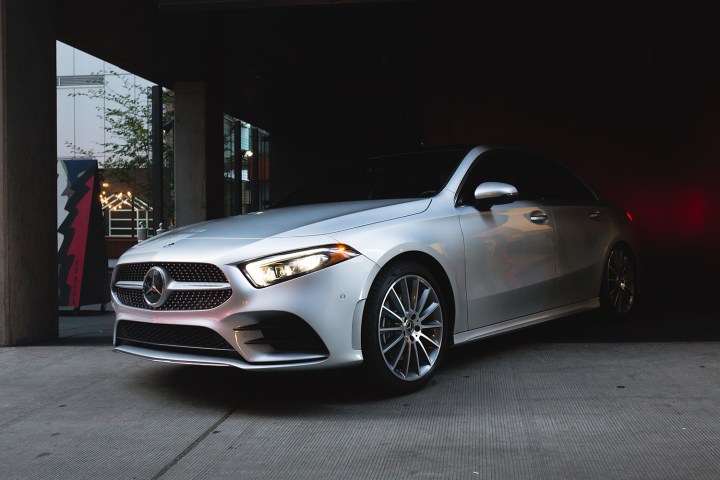 When dealing with most automakers (Tesla being a notable exception), options and features are set in stone. Once you drive your new car off a dealer’s lot, it’s usually impossible to upgrade it. But Mercedes-Benz is trying to change that, albeit on a small scale.
When dealing with most automakers (Tesla being a notable exception), options and features are set in stone. Once you drive your new car off a dealer’s lot, it’s usually impossible to upgrade it. But Mercedes-Benz is trying to change that, albeit on a small scale.
The German automaker will use its Mercedes Me platform to offer infotainment upgrades to customers after they purchase or lease their vehicles. The upgrade scheme is only available on the GLE SUV, A-Class, and B-Class (which isn’t sold in the United States). What do those three vehicles have in common? They all have Mercedes’ latest MBUX infotainment system, which was designed with on-demand upgrades in mind.
Available options include digital radio, navigation, and smartphone integration (Apple CarPlay/Android Auto). Customers need a Mercedes Me profile and functioning in-car data connection to add them. All it takes are a few clicks through the Mercedes Me store that appears in cars’ infotainment menus.
This setup could be very beneficial to Mercedes customers. Buyers who have second thoughts about a certain feature can add it when they want to, or buyers of used cars could add features that weren’t present when the car left the factory. As CNET notes, digital radio will become mandatory on new vehicles sold in the European Union beginning in 2020. The ability to add digital radio to an existing car could help boost the resale value of pre-2020 vehicles.
Mercedes may only be offering a handful of upgrades on a handful of models, but this could be the start of a major change in how automakers view their relationships with customers. While Tesla frequently adds new features and tweaks existing ones via over-the-air software updates, traditional automakers have been hesitant to do so. They’d rather customers just buy a new car when an upgraded infotainment system is released.
But while it takes, on average, four years to design and launch a new car, software is developed so rapidly that it is in a more or less constant state of flux. Automakers may need to introduce more regular upgrades just to keep up. That strategy can also give automakers more flexibility. Tesla began shipping cars with the hardware for its first-generation Autopilot system long before the software was ready. Audi is selling Q8 SUVs with the hardware for its trick Matrix HD lighting system, even though the system doesn’t have U.S. regulatory approval. Once approval is granted, Audi will activate the system via a software update.


